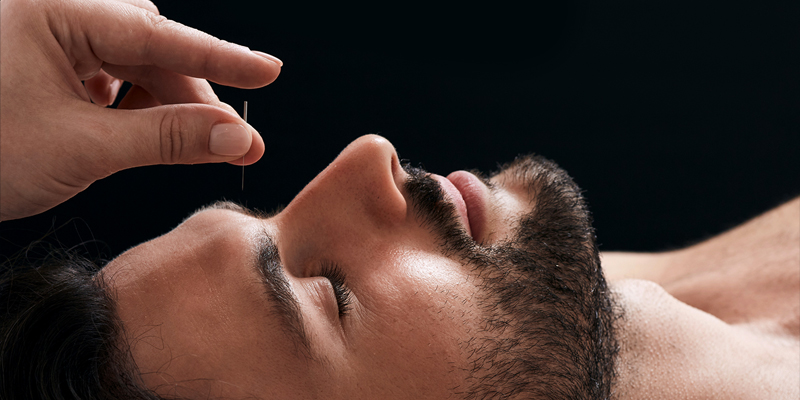By Philip Wu
QubeCore Sports & Rehab Acupuncturist
Strokes are the second leading cause of death worldwide (via WHO). Those who survive strokes generally face symptoms including paralysis, numbness, severe dizziness, aphasia (difficulty in speech) and dysphagia (difficulty in swallowing).
Strokes can be classified into two groups: ischemic stroke and hemorrhagic stroke. An ischemic stroke occurs when blood clots or other particles block the blood vessels that lead to the brain. On the other hand, a hemorrhagic stroke occurs when an artery in the brain leaks blood or ruptures. Such leaked blood increases pressure on brain cells that then become damaged.
Scalp acupuncture is an evidence-based 1,2 treatment that is frequently used in treating symptoms during stroke recovery. This therapy employs the Traditional Chinese Medicine needling method to target key areas of the nervous system. The area that is needled on the scalp is designated according to functions. These include the motor area, sensory area, chorea/tremor controlling area, speech area, vertigo/auditory area, praxis area, balance area and vision area.
Scalp acupuncture is contrasted from traditional body acupuncture, as the needle is inserted over an area between the skin and cranium instead of at a single point. Furthermore, greater needle manipulation is required as practitioners must twirl the needle 200 times per minute, for 2 to 3 minutes, between 10 minute intervals, to alleviate symptoms. Patients also actively participate by moving the affected area themselves or with assistance from others.
Six needling methods are used in scalp acupuncture:
• Triple method
• Adjacent method
• Parallel method
• Opposing method
• Crossing method
• Relay method
Two factors must be considered when determining whether to use scalp acupuncture during stroke recovery. First, timing is considered. In general, the earlier the treatment, the better the response. However, for hemorrhagic strokes, the patient must reach a stable condition first. Second, scalp acupuncture is most effective when used in conjunction with other Traditional Chinese Medicine therapies. These include body acupuncture, ear acupuncture, electric acupuncture and bleeding cupping.
In conclusion, acupuncture effectively alleviates symptoms during stroke recovery, particularly when used in conjunction with other Traditional Chinese Medicine and Western therapies. Use acupuncture to improve your health today by booking an appointment with Philip Wu, Registered Acupuncturist, at QubeCore Sports & Rehab.
Our clinic offers a full range of Acupuncture in North Vancouver for a wide range of conditions. Call 604.210.2274 or simply book online here.

